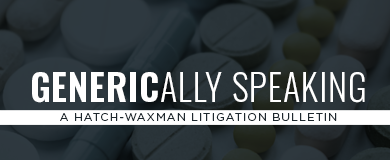- Acumen Powered by Robins Kaplan LLP®
- American Indian Law and Policy
- Antitrust and Trade Regulation
- Appellate Advocacy and Guidance
- Business Litigation
- Civil Rights and Police Misconduct
- Class Action Litigation
- Commercial/Project Finance and Real Estate
- Corporate Governance and Special Situations
- Corporate Restructuring and Bankruptcy
- Domestic and International Arbitration
- Entertainment and Media Litigation
- Health Care Litigation
- Insurance and Catastrophic Loss
- Intellectual Property and Technology Litigation
- Mass Tort Attorneys
- Medical Malpractice Attorneys
- Personal Injury Attorneys
- Telecommunications Litigation and Arbitration
- Wealth Planning, Administration, and Fiduciary Disputes
Acumen Powered by Robins Kaplan LLP®
Ediscovery, Applied Science and Economics, and Litigation Support Solutions
-
July 22, 2024Seven Robins Kaplan Attorneys Named to Minnesota Lawyer’s Power 30: Personal Injury List
-
July 18, 2024Emily Niles Named to Law360’s Top Attorneys Under 40
-
July 16, 2024David Martinez Named To 2024 Leaders of Influence: Litigators & Trial Attorneys by Los Angeles Business Journal
-
August 6, 2024Identifying Opportunities: Affirmative Recovery Strategies
-
August 15, 2024Annual Robins Kaplan MAJ Welcome Reception
-
October 20, 2024License Agreement Disputes:
-
July 24, 2024Navigating Copyright Act Section 117 in Software Licensing and Litigation
-
Second QuarterGENERICally Speaking: A Hatch-Waxman Litigation Bulletin
-
July 15, 2024Making The Whole Truth Public
-
September 16, 2022Uber Company Systems Compromised by Widespread Cyber Hack
-
September 15, 2022US Averts Rail Workers Strike With Last-Minute Tentative Deal
-
September 14, 2022Hotter-Than-Expected August Inflation Prompts Massive Wall Street Selloff
Find additional firm contact information for press inquiries.
Find resources to help navigate legal and business complexities.
Corcept Therapeutics, Inc. v. Teva Pharms. USA, Inc.
Korlym® (mifepristone)
December 29, 2023

Case Name: Corcept Therapeutics, Inc. v. Teva Pharms. USA, Inc., No. 18-CV-03632 (RMB/LDW), 2023 WL 9017081 (D.N.J. Dec. 29, 2023) (Bumb, J.)
Drug Product and Patent(s)-in-Suit: Korlym® (mifepristone); U.S. Patents Nos. 10,195,214 (“the ’214 patent”) and 10,842,800 (“the ’800 patent”)
Nature of the Case and Issue(s) Presented: Corcept asserted a number of patents against Teva’s ANDA product, two of which remained in suit through a bench trial. Those patents (the ’214 and ’800 patents) cover methods of controlling hyperglycemia in certain patients with Cushing’s syndrome.
The parties presented one issue during the bench trial: whether Teva induces infringement of the ’214 patent and the ’800 patent. The court determined that Corcept had not carried its burden: “it has not demonstrated that there is a likelihood of direct infringement of the asserted claims in the future because it has not established that physicians are likely to coadminister mifepristone with a strong CYP3A inhibitor at an infringing sequence and/or dosage now or in the future. Indeed, Corcept failed to introduce credible record evidence that anyone has ever previously infringed the asserted claims.” Further, Corcept failed to show that Teva possesses the requisite intent to induce—its proposed label does not “encourage, recommend, or promote” infringement.
Why Teva Prevailed: After a fact-intensive analysis, the court determined that Corcept did not satisfy its burden of proof because the evidence did not show that anyone has ever practiced the claimed methods (over a ten-year period since FDA approved Korlym). The court (and Teva) relied on the Genentech case, in which the Federal Circuit considered certain patented methods that, based on the record evidence, no physicians had ever practiced or would ever practice. Here, the court did not find that it must credit the lack of evidence of past infringement in finding no likelihood of future infringement. But the lack of evidence is relevant.
The court also cited record evidence demonstrating that future infringement is unlikely—physicians generally avoid the claimed method (co-administering mifepristone and strong CYP3A inhibitors). Indeed, Teva’s label cautions against coadministration. And at least one non-infringing alternative suggested that physicians are not likely to directly infringe in the future.
The Court separately determined that Teva’s label does not encourage physicians to practice the asserted claims. “The label only provides instructions how to coadminister the substances to achieve an efficacious result if a physician determines that it is medically necessary.” And even if a physician decided to co-administer, the label provides non-infringing options. Thus, the court declined to infer specific intent to induce infringement.
Related Publications
Related News
If you are interested in having us represent you, you should call us so we can determine whether the matter is one for which we are willing or able to accept professional responsibility. We will not make this determination by e-mail communication. The telephone numbers and addresses for our offices are listed on this page. We reserve the right to decline any representation. We may be required to decline representation if it would create a conflict of interest with our other clients.
By accepting these terms, you are confirming that you have read and understood this important notice.
